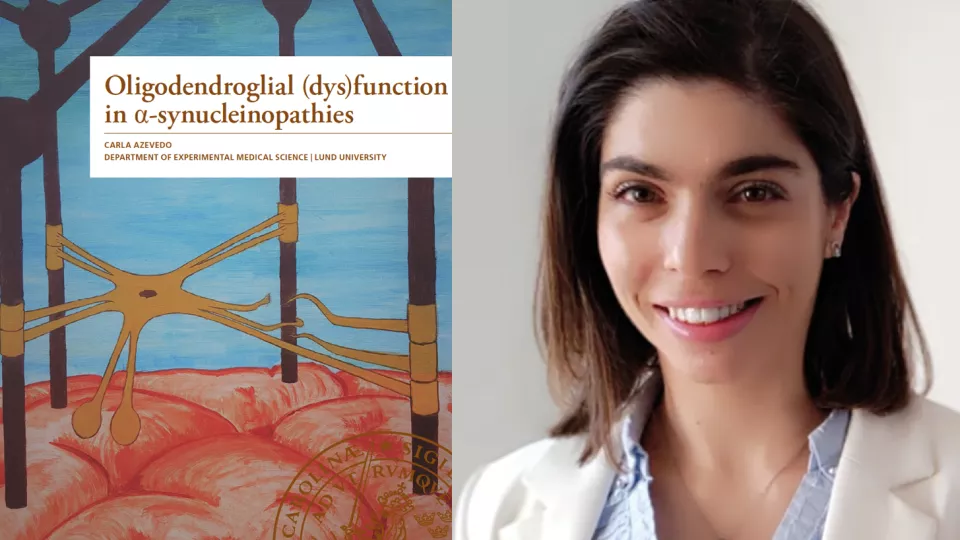How did you end up doing a PhD at Lund Stem Cell Center?
I’m originally from Porto, Portugal. After my undergraduate studies, I was awarded a fellowship at the Faculty of Pharmacy, at Lisbon University, which was my first experience with Parkinson’s disease (PD) research. I came into contact with Laurent Roybon through a collaborator and subsequently joined the Human Biology Program at Lund Stem Cell Center. After this I continued on to a PhD in the iPSC laboratory for CNS disease modeling.
What have you been working with during your PhD?
I have been generating patient induced pluripotent stem cell (iPSC) based models for the study of alpha-synucleinopathies. A hallmark of these neurodegenerative disorders is the pathological accumulation of a-synuclein (a-syn) into proteinaceous aggregates, although their complexity is not yet fully understood.
I have been working with a very aggressive familial form of PD, known as the A53T variant, as well as with multiple systems atrophy (MSA), a rare condition for which patients exhibits symptoms very similar to those of PD. In fact, most MSA patients are initially misdiagnosed with PD, although MSA evolves much faster and is lethal within 10 years after diagnosis.
Previously published studies describe that the main cell type affected in MSA is oligodendrocytes, a type of glia involved in maintaining homeostasis, forming myelin and providing support for neurons. Recently, we demonstrated that these cells, like neurons, expressed the SNCA gene encoding for a-syn (Djelloul et al, Stem Cell Reports, 2015). We hypothesised that if neurons expressing the A53T variant were injured, oligodendrocytes with the same genetic background should also show cellular dysfunction, and contribute to disease progression.
Although there are a number of animal models that pathocopy and phenocopy PD and MSA, no genetic link has been associated with MSA, so it is possible that current transgenic models do not reflect the human pathology. Therefore, our research is performed in human iPSC-based models of these diseases.
I have been working with a cell culture system in which I grow the iPSCs, reprogrammed from patient fibroblasts, as 3D spheroids. The spheroids are then dissociated to form monolayer cultures that are grown with specific factors to induce terminal differentiation into oligodendrocytes. We subsequently perform experiments such as immunocytochemistry, transcriptomic analysis, and FACS sorting, to gain insights into the impact of oligodendrocyte dysfunction in these devastating diseases.
What has been the most enjoyable aspect of your PhD?
I like the fact that there is not a single day that is the same. Every day in the lab is unique, performing different experiments, tackling a variety of subjects, and interacting with lots of different researchers. It’s a very dynamic environment.
What will you do after you have defended your thesis?
The lab has one of the largest libraries of iPSCs in the world, with approximately 500 iPSC lines generated from over 100 patients diagnosed with either Parkinson’s disease, Alzheimer’s disease, Huntington’s disease or amyotrophic lateral sclerosis. I will remain in Laurent Roybon’s group as postdoctoral researcher, continuing some ongoing projects and starting up some new exciting ones using our collection of iPSCs.
What is the best thing about Lund Stem Cell?
It’s a great collaborative environment. We are a small community and we all interact with one another. This is particularly evident when we all come together and participate in events, like UniStem Day.
Carla will be defending her PhD thesis titled “Oligodendroglial (dys)function in alpha-synucleinopathies” on Thursday 30th April at 13:30 at Segerfalksalen BMC A10, Sölvegatan 17, Lund or by Zoom: https://lu-se.zoom.us/j/164019709
Her opponent is Associate Professor João Relvas from the University of Porto.


